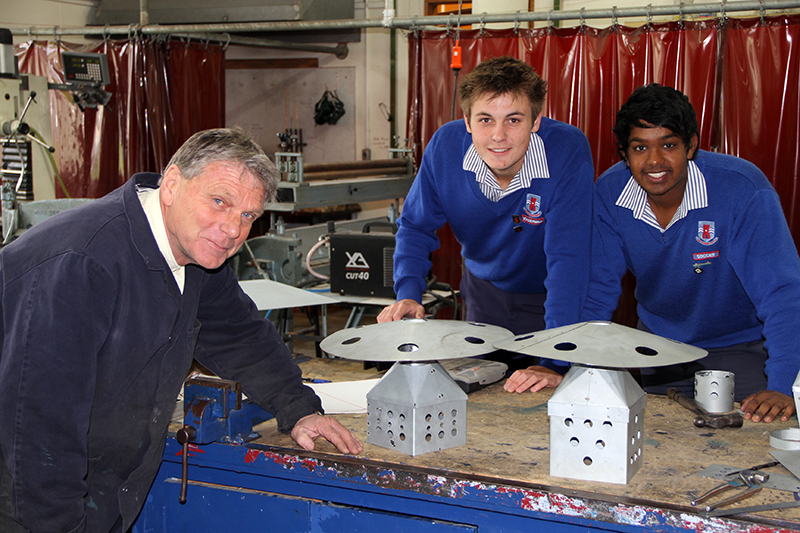Technology Teacher Builds the Pathway from School to Work
Posted on November 18, 2016
If you cut Corrie Lindgreen in half, you would see ‘engineer and teacher’ written right through him.
Dutch born and bred, Corrie’s family immigrated to Auckland in 1959. He went into an apprenticeship with toolmaking and product design company Eric Paton Ltd, straight from school. He spent the next 10 years working in general engineering companies, such as Alcan Industry, Rex Consolidated and Trojan Tools, working his way up to assistant chief engineer and then moving on to self-employment.
Corrie is passionate about passing on skills to the next generation and encouraging young people into New Zealand trades. He switched profession in the 1980s and became a teacher. His first post was at Manurewa High School, and for the last 30 years he’s been in the Technical Department at Macleans College, located in East Auckland.
“It’s important to me that I’m able to engage my students in meaningful learning,” says Corrie. In his classes, students are not just following instructions and creating items ‘by the book’. They’re problem-solving, using their interest in maths and expanding their English expression, because these are all practical and necessary to the tasks they’re presented with. “Not only that, every skill I teach is one directly valued by industry in this country.”
Corrie has an ongoing association with technological and engineering industries. He’s kept his original industry ties and expanded his network over the years. “So many of our young people have gone from apprenticeships into good positions for prestigious companies. Some of them run major companies themselves. They email me regularly offering places to our students.”
As Head of Engineering, Corrie is ideally placed to make sure his department’s projects and competition entries are written up online and in trade magazines, like The Shed.
“People see the kind of things we do as part of the Tools4Work programme. They see articles on the fishing reels we make, or wind indicators, or designing a CO2 racing car. And they’re impressed and want our students in their companies.”
Corrie’s ongoing ‘student skills advertising campaign’ has created a wealth of opportunities for local youngsters.
“My department has connections in aircraft, marine, automotive, air conditioning, roofing and product design tool rooms. That encourages our students to be innovative and take their learning seriously.” A long-term advocate for industry-based vocational work in secondary schools and firmly embedding pathways to jobs into the school system, Corrie also has a history with Competenz stretching back 10 years.
In the early ‘90s Corrie worked with Brian Lane (currently the Competenz Careers Advisor) on the University of Auckland’s Team Solutions programme, moderating workshop technology components. When Brian moved to Competenz he didn’t hesitate to recommend Corrie as the right person to help him update all the Level 2 projects and student workbooks.
“The Unit Standards model, supported by Competenz and industry, is the kind of thing that actively encourages students and businesses to develop trade apprenticeships. It stimulates modern industry. And I’m right behind that.”
Corrie sees a big part of his role as providing the best opportunities to create a smooth transition from school to work.
“Luckily engineering at our school is greatly valued. Our principal wants to focus on hands-on practical learning as well as academia. And we’re blessed to have CNC driven equipment, 3D printers and the latest manually-driven machinery. Our kids can hit the shop floor running.”
Corrie has made it his mission to develop and nurture the school’s industry contacts.
“Competenz provides us with an opportunity based on practical learning that’s supported by the University of Technology and endorsed by industry leaders.”
Article reproduced with the permission of Competenz.
